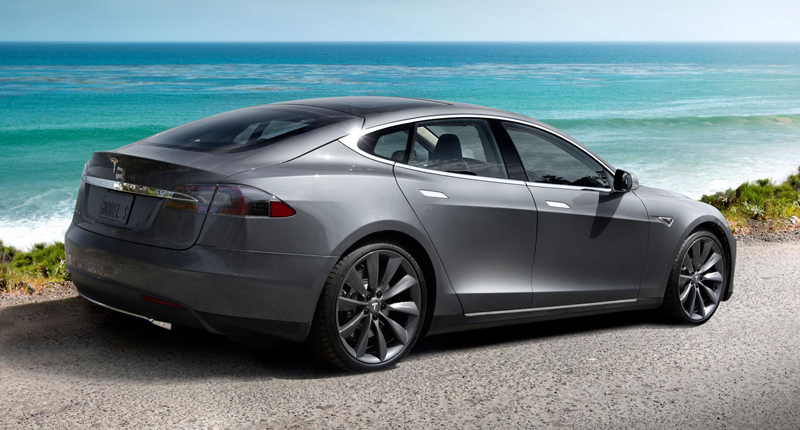South Africa’s retail forex industry is entering a decisive phase as regulation tightens and consolidation accelerates. What does it mean for brokers and traders?
Here’s why Elon Musk opening up Tesla’s patents matters


The biggest news in the motoring world this week was the revelation by electric car company Tesla that it would be opening up its patents “for the advancement of electric vehicle technology”.
“If we clear a path to the creation of compelling electric vehicles, but then lay intellectual property landmines behind us to inhibit others,” Tesla CEO Elon Musk writes in the blog, “we are acting in a manner contrary to that goal. Tesla will not initiate patent lawsuits against anyone who, in good faith, wants to use our technology”.
And hidden in those words is the reason Tesla’s decision to open up its patent book to the world matters so much.
Patents hurt innovation
You see, the strange thing about patents — set of exclusive rights granted by a sovereign state to an inventor or assignee for a limited period of time in exchange for detailed public disclosure of an invention — is that they were originally designed to protect innovation. Developed back in a time when most inventors were slightly eccentric types were working alone in sheds, patents allowed them at least some form of protection from copy-cats.
For many inventors that’s exactly what they’ve done for a large part of their history. Anyone who’s watched the tech space over the past few years however will have become aware of the term “patent troll”. It was a term that was bandied about frequently during the most epic parts of Apple and Samsung’s legal wars with each other.
In truth though, real patent trolls seldom have anything to do with actual technology companies. More often than not, they’re people or companies who enforce patent rights against people they perceive to have infringed on those patents despite the fact that they don’t plan on doing anything useful with them.
If you can’t see how that could be harmful to innovation, think about what would have happened if the various inventors trying to build the first phone had stopped inventing once they got the patent office and had instead spent all their energy stopping anyone else from ever building a phone.
That’s essentially what’s happening in the tech space at the moment. In fact, patent trolling has gotten so bad that some have wondered whether we shouldn’t just scrap patents altogether.
Musk seems to hold the same attitude. In the blog, he writes: “After Zip2 [Musk’s first company], when I realised that receiving a patent really just meant that you bought a lottery ticket to a lawsuit, I avoided them whenever possible.
For an example of how opening up patents can aid innovation in an industry, you just have to look at fashion. The nature of the global economy means that a designer can release a collection one night and there will be copies, of varying quality, on racks around the globe the next day.
Here’s the thing though, the people who really care know the real thing. They’re the ones who will always spend money on it. The people that are copying the design meanwhile have to figure out all the tricks the original designer used, pushing themselves to new heights. That original designer meanwhile has to constantly push themselves to stay ahead.
Great, but what’s that got to do with cars?
Everything.
Okay okay, I’ll expand. There are serious parallels between what happens in the fashion industry and what has happened in the car industry throughout its history. Take Japanese cars for instance. For a number of years pretty much every car to come from that nation was, to put it generously, inspired by something built by a European or British manufacturer.
Over the past few years though, it’s used the know-how built up in those years and injected its own unique personality into its best cars. Take the Nissan GTR for instance, no one would ever accuse it of feeling like just another mass-produced Japanese car. Every time I lay eyes on it, a smile cracks across my face. That’s not because it brings to mind the kind of expressions you associate with European supercars — “passion”, “operatic”, “flair” — but because it makes me feel like a kid playing racing games on a PlayStation until they’ve got every corner and chicane waxed and setting a blisteringly fast time their mates could never hope to beat. And that, in its own way, is truly sublime.
No one can ever build up that sense of individuality if they’re spending their days locked up in patent battles.
Perhaps one of the reasons Musk can see that is because his background is in tech, rather than motoring (remember that he made his name at PayPal). While Musk was building his fortune, the open source movement was at its peak and its champion was Firefox, the property of open source non-profit Mozilla, the browser that was standing up to Internet Explorer…and, little by little, winning.
If electric cars are to thrive the way Musk wants them to, they need the kind of accelerated innovation sparked by the browser wars or that is the norm in the fashion industry.
That’s all well and good, but even if we take the Tesla CEO at his word, why has it taken him so long to open up the company’s patents? Why weren’t they open from the start?
Missing the rivalry
The answer, as it turns out was because the big manufacturers didn’t act as expected. According to Musk, “we felt compelled to create patents out of concern that the big car companies would copy our technology and then use their massive manufacturing, sales and marketing power to overwhelm Tesla”.
Instead, they did pretty much what they’d always done and side-lined research and production on electric cars.
As Musk notes:
The unfortunate reality is the opposite: electric car programs (or programs for any vehicle that doesn’t burn hydrocarbons) at the major manufacturers are small to non-existent, constituting an average of far less than 1% of their total vehicle sales.
At best, the large automakers are producing electric cars with limited range in limited volume. Some produce no zero emission cars at all.
“Our true competition is not the small trickle of non-Tesla electric cars being produced,” he adds, “but rather the enormous flood of gasoline cars pouring out of the world’s factories every day”.
As long as Tesla is the only company producing electric cars of a fairly decent quality, that won’t change. Sure it could keep going along in the same way it has been, but in that case its innovation would be, at best, slow.
With real, open competition, Tesla will be forced to push itself or be replaced from its place at the top of the electric car maker pile.
Suddenly the electric car has a glimpse of a future.

